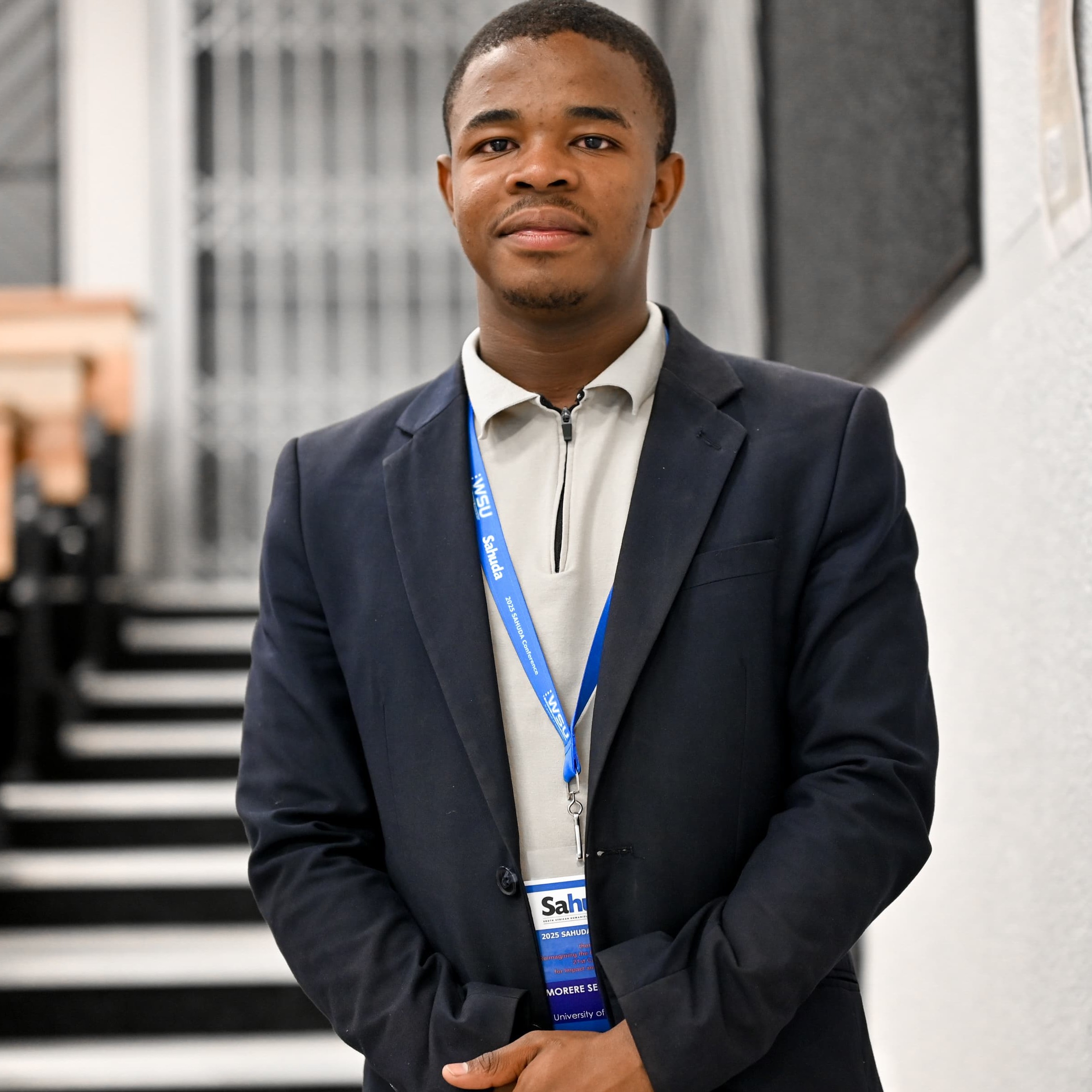UL STUDENT PROBES THE SOUL OF STUDENT LEADERSHIP THROUGH A BLACK CONSCIOUSNESS LENS

University of Limpopo Political Sciences student, Morore Sekhukhune has put the state of student leadership in South Africa’s higher education system under the microscope through the lens of Black Consciousness philosophy, identifying ideological decay within student governance, where personal incentives and material rewards overshadow activism and accountability.
His research, titled “The Soul of Student Leadership: A Black Consciousness Perspective,” examined the crises confronting Student Representative Councils (SRCs) and how they have drifted from their original ideological purpose of advancing student empowerment and liberation.
Sekhukhune forms part of a strong line-up of speakers at the three-day SA Humanities Deans Association (SAHUDA) 2025 conference which entered day two on Thursday.
His study reflected on the historical and ideological foundations of student leadership, tracing its roots to Steve Biko’s establishment of the South African Students’ Organisation (SASO) in 1968.
The researcher argues that the current crop of SRC leadership has detached from the philosophy of Black Consciousness which once positioned student leadership at the forefront of transformative and politically conscious movement within universities.
“There was once an ideological necessity that justified the existence of the SRC. But now, what we see is an extension of institutional and political interests, rather than authentic student representation,” said Sekhukhune.
He identified two key issues shaping this crisis-institutional capture and political capture.
He argued that institutional capture manifests when SRCs operate as extensions of university administrations, prioritising institutional image over student advocacy.
Explaining political capture, Sekhukhune said this phenomenon occurs when SRCs become aligned with national political parties, turning student governance into a battlefield for partisan interests.
“The SRC is no longer an SRC of the students. It has become an SRC of political organisations such as the EFF, SASCO, and MK, which often advance agendas disconnected from student struggles,” he said.
“Many student leaders today are motivated by access to privileges expensive trips, luxury gadgets, and social status while students continue to grapple with pressing issues like water shortages and inadequate accommodation,” he noted.
His interviews and observations revealed instances where student protests appeared orchestrated to simulate activism, with limited impact on solving real problems.
The study further highlighted concerns about accountability and transparency in student governance.
Sekhukhune further uncovered that in many cases, SRCs are not directly answerable to the broader student body and operate with limited financial oversight.
He found that annual general meetings, which are meant to ensure accountability, are often closed off or selectively attended.
“There is little to no transparency about how SRC budgets are used, and this lack of accountability breeds corruption and mistrust,” he said.
To restore the integrity of student leadership, Sekhukhune proposes a return to ideological grounding and independent representation.
He suggests that SRC candidates should contest elections as individuals rather than as party affiliates to eliminate political interference.
“Independent contestation would allow students to elect leaders who represent their interests directly, not political mandates,” he advised.
According to Sekhukhune, reclaiming the soul of student leadership requires revisiting its philosophical roots in Black Consciousness-an ideology that frames leadership as an act of service and liberation rather than personal advancement.
In conclusion, the researcher said until student leaders understand that Black Consciousness produces purposeful and principled leadership, the crisis in student representation will persist.
By Anita Roji
